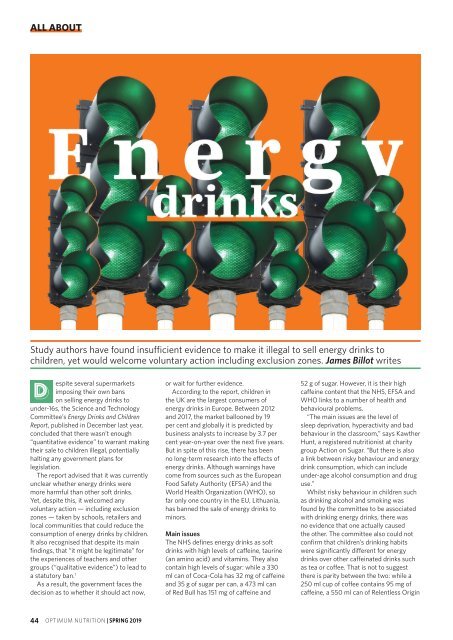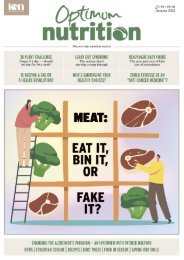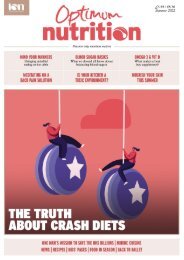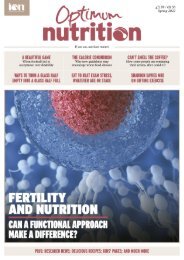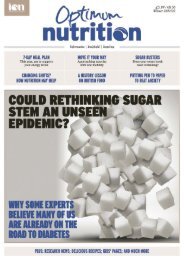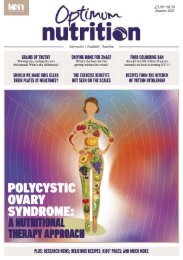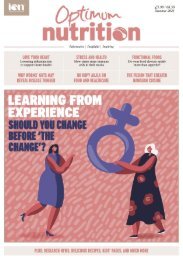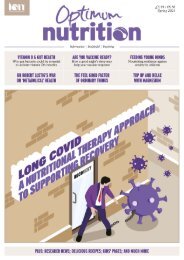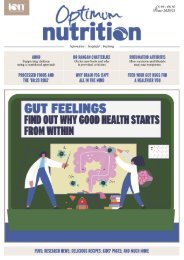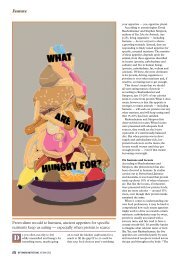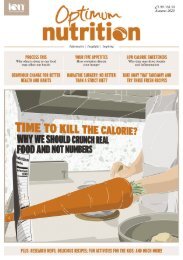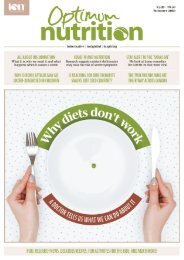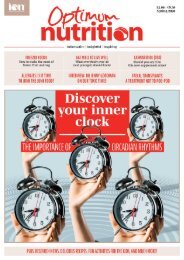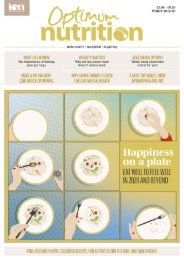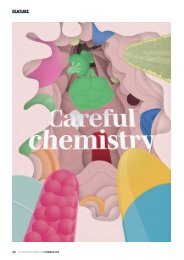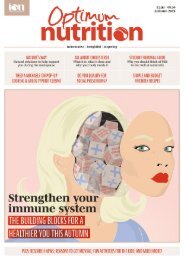You also want an ePaper? Increase the reach of your titles
YUMPU automatically turns print PDFs into web optimized ePapers that Google loves.
ALL ABOUT<br />
Study authors have found insufficient evidence to make it illegal to sell energy drinks to<br />
children, yet would welcome voluntary action including exclusion zones. James Billot writes<br />
D<br />
espite several supermarkets<br />
imposing their own bans<br />
on selling energy drinks to<br />
under-16s, the Science and Technology<br />
Committee’s Energy Drinks and Children<br />
Report, published in December last year,<br />
concluded that there wasn’t enough<br />
“quantitative evidence” to warrant making<br />
their sale to children illegal, potentially<br />
halting any government plans for<br />
legislation.<br />
The report advised that it was currently<br />
unclear whether energy drinks were<br />
more harmful than other soft drinks.<br />
Yet, despite this, it welcomed any<br />
voluntary action — including exclusion<br />
zones — taken by schools, retailers and<br />
local communities that could reduce the<br />
consumption of energy drinks by children.<br />
It also recognised that despite its main<br />
findings, that “it might be legitimate” for<br />
the experiences of teachers and other<br />
groups (“qualitative evidence”) to lead to<br />
a statutory ban. 1<br />
As a result, the government faces the<br />
decision as to whether it should act now,<br />
or wait for further evidence.<br />
According to the report, children in<br />
the UK are the largest consumers of<br />
energy drinks in Europe. Between 2012<br />
and 2017, the market ballooned by 19<br />
per cent and globally it is predicted by<br />
business analysts to increase by 3.7 per<br />
cent year-on-year over the next five years.<br />
But in spite of this rise, there has been<br />
no long-term research into the effects of<br />
energy drinks. Although warnings have<br />
come from sources such as the European<br />
Food Safety Authority (EFSA) and the<br />
World Health Organization (WHO), so<br />
far only one country in the EU, Lithuania,<br />
has banned the sale of energy drinks to<br />
minors.<br />
Main issues<br />
The NHS defines energy drinks as soft<br />
drinks with high levels of caffeine, taurine<br />
(an amino acid) and vitamins. They also<br />
contain high levels of sugar: while a 330<br />
ml can of Coca-Cola has 32 mg of caffeine<br />
and 35 g of sugar per can, a 473 ml can<br />
of Red Bull has 151 mg of caffeine and<br />
52 g of sugar. However, it is their high<br />
caffeine content that the NHS, EFSA and<br />
WHO links to a number of health and<br />
behavioural problems.<br />
“The main issues are the level of<br />
sleep deprivation, hyperactivity and bad<br />
behaviour in the classroom,” says Kawther<br />
Hunt, a registered nutritionist at charity<br />
group Action on Sugar. “But there is also<br />
a link between risky behaviour and energy<br />
drink consumption, which can include<br />
under-age alcohol consumption and drug<br />
use.”<br />
Whilst risky behaviour in children such<br />
as drinking alcohol and smoking was<br />
found by the committee to be associated<br />
with drinking energy drinks, there was<br />
no evidence that one actually caused<br />
the other. The committee also could not<br />
confirm that children’s drinking habits<br />
were significantly different for energy<br />
drinks over other caffeinated drinks such<br />
as tea or coffee. That is not to suggest<br />
there is parity between the two: while a<br />
250 ml cup of coffee contains 95 mg of<br />
caffeine, a 550 ml can of Relentless Origin<br />
44 OPTIMUM NUTRITION | SPRING <strong>2019</strong>


